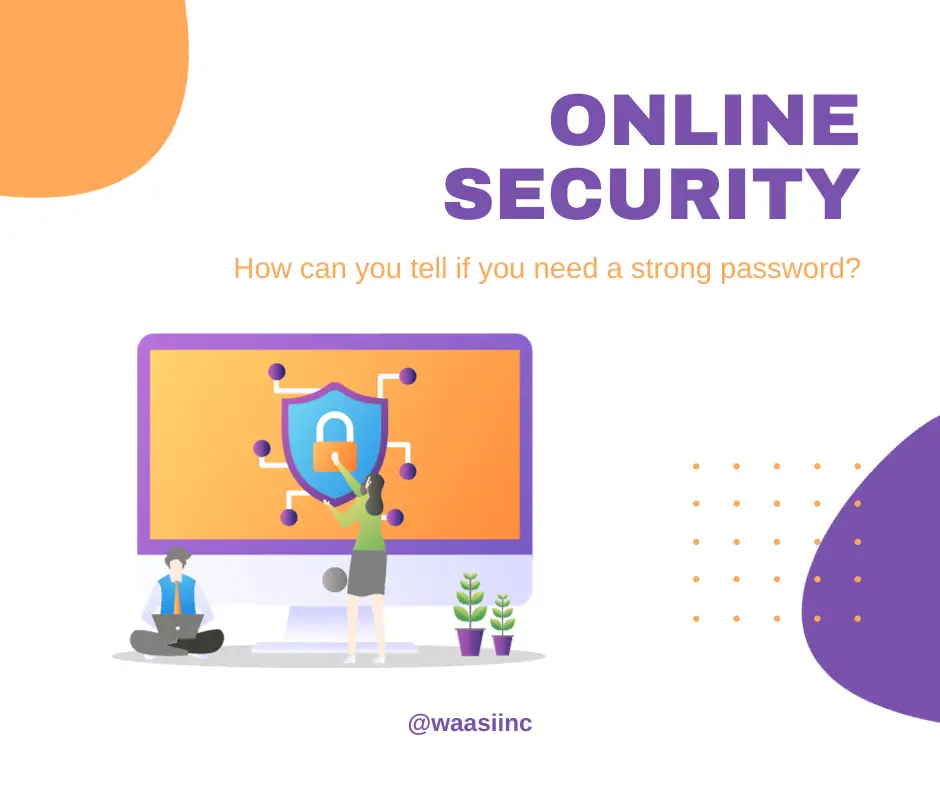
Share This!
How can you tell if you need a strong password? It’s simple: whenever an app, service, or website requires a password.
Preventing Unauthorized Entry
The main purpose of passwords is to keep your accounts safe by preventing unauthorized entry. Unfortunately, many people use simple and weak passwords that are easy for others to guess. Avoid using easily guessable information such as names, birthdays, and common phrases.
Using a strong password is crucial for several important reasons:
- Security: A strong password helps protect your online accounts and personal information from unauthorized access and potential cyberattacks. Weak passwords are more susceptible to hacking attempts, leading to identity theft, financial loss, or cybercrime.
- Privacy: Strong passwords help maintain online privacy by preventing others from accessing your emails, social media accounts, personal documents, and other private information.
- Account Protection: Strong passwords are a barrier against unauthorized access to your accounts and are particularly important for accounts that contain sensitive information, such as online banking, email, and healthcare portals.
- Data Protection: Your accounts often contain valuable personal and professional data. Strong passwords help protect this data from theft or manipulation by malicious individuals or groups.
- Preventing Unauthorized Purchases: For accounts linked to online shopping platforms, strong passwords can prevent unauthorized purchases and protect your financial assets.
- Identity Theft Prevention: Weak passwords can be exploited to steal your identity, potentially causing long-lasting damage to your personal and financial well-being. Strong passwords are a vital defense against identity theft.
- Reputation Management: Unauthorized access to your online accounts can lead to misuse of your identity, negatively affecting your reputation and relationships with others.
- Compliance Requirements: In some cases, using strong passwords is mandated by industry regulations and best practices. Failing to comply with these requirements can result in legal consequences or fines.
- Reducing the Risk of Compromised Accounts: Strong passwords help reduce the risk of compromised accounts, saving you time, money, and stress associated with account recovery and remediation efforts.
Passwords Ranked From Weak to Strong
Passwords can be ranked on a scale, ranging from weak to strong. For example, a weak password could be something like “123456”, while a strong password might be “DywqK*yKU3si”. A strong password typically includes a mix of upper and lower-case letters, is at least eight characters long, and contains a number and at least one special character if permitted. On the other hand, strong passwords can also be memorable yet complex, like “shelfful-FLYABLE-widen”.
Remember, using a strong password is essential to protect your personal information and ensure the security of your accounts.
Use a Unique Password for Each Account
It’s important to use unique passwords for different accounts to prevent a security breach on one account from compromising others. Consider using a reputable password manager to help generate and store strong, unique passwords for all your online accounts.
Password management software such as 1Password or LastPass offers secure storage of passwords for use across all of your devices. Their built-in password generators create long randomized passwords that protect against hacking. The software remembers everything for you and automatically signs you into your favorite sites and apps.
Learn more about using strong, secure passwords.


